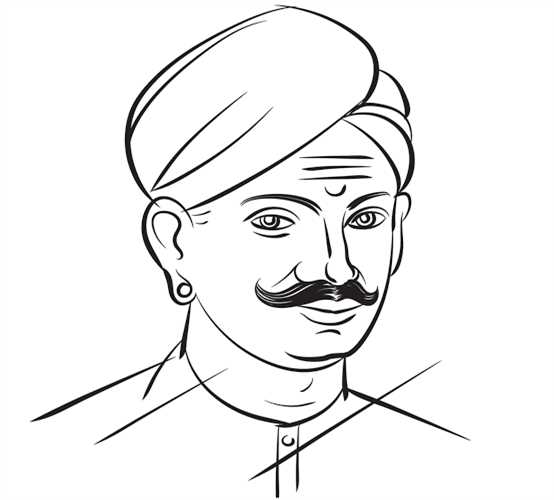 Mangal Pandey was an Indian soldier who played a significant role in India's struggle for independence from British rule.
He was born in 1827 in a small village in Uttar Pradesh and was recruited as a sepoy in the British East India Company's army. However, he later became a rebel against the British and was hanged to death on April 8, 1857. There were several reasons why Mangal Pandey was hanged to death by the Britishers.
Mangal Pandey was an Indian soldier who played a significant role in India's struggle for independence from British rule.
He was born in 1827 in a small village in Uttar Pradesh and was recruited as a sepoy in the British East India Company's army. However, he later became a rebel against the British and was hanged to death on April 8, 1857. There were several reasons why Mangal Pandey was hanged to death by the Britishers.
The first reason was his involvement in the Indian Rebellion of 1857. The rebellion, also known as the First War of Indian Independence, was a widespread uprising against British rule in India. The British had imposed many policies that oppressed the Indian people, and this had led to widespread discontent among the Indian population. The rebellion was an attempt to overthrow British rule and establish Indian sovereignty.
Mangal Pandey played a crucial role in the rebellion, particularly in the events leading up to the outbreak of the rebellion. In March 1857, he led a group of sepoys who refused to use the new Enfield rifles that had been issued to them by the British. The sepoys were required to bite off the end of the cartridge before loading it into the rifle, and rumors had spread that the cartridges were greased with cow and pig fat. This was offensive to the Hindu and Muslim sepoys, who considered the cow and pig sacred.
Mangal Pandey's refusal to use the cartridges was seen as an act of rebellion against the British, and he was arrested and put on trial. He was found guilty of mutiny and sentenced to death by hanging. His execution was intended to serve as a warning to other rebels who were planning to rise up against the British.
Another reason why Mangal Pandey was hanged to death was the fear that his rebellion could spread to other parts of India. The British were aware of the growing discontent among the Indian people, and they feared that the rebellion could turn into a full-blown war. They saw Mangal Pandey as a dangerous figure who could inspire others to join the rebellion, and his execution was intended to quell any further uprisings.
Finally, Mangal Pandey's execution was also a way for the British to assert their authority and demonstrate their power over the Indian people. The British saw themselves as superior to the Indian people and believed that their rule was justified. They saw the rebellion as a challenge to their authority, and they wanted to show that they would not tolerate any disobedience or rebellion.
In conclusion, Mangal Pandey was hanged to death by the Britishers for his involvement in the Indian Rebellion of 1857. His refusal to use the new cartridges was seen as an act of rebellion, and his execution was intended to serve as a warning to other rebels. The British feared that the rebellion could spread, and they saw Mangal Pandey as a dangerous figure who could inspire others to join the rebellion. Finally, his execution was also a way for the British to assert their authority and demonstrate their power over the Indian people. Despite his execution, Mangal Pandey's legacy lives on, and he is remembered as a hero who fought for India's freedom from British rule.
Also Read:- How is AI used in Military